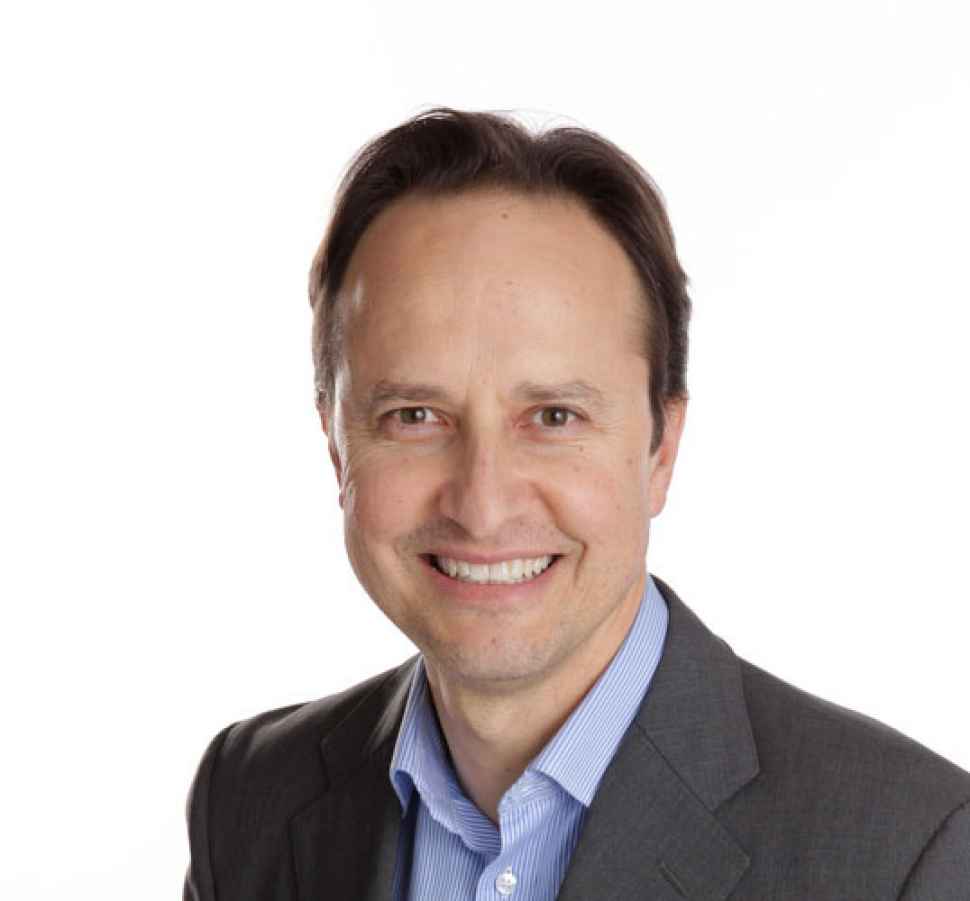
Professor Chris Karapetis
Clinical trials discovering new knowledge
Cancer treatments exist now that didn’t when Professor Chris Karapetis was training as an oncologist. Twenty years ago, he would have suggested chemotherapy to treat melanoma. Now he turns to immune therapies, which can extend the lives of his patients by 5-10 years and even cause advanced cancers to disappear completely.
One way we learn more about cancer and develop new treatments is through clinical trials. They help us understand what is effective, what side effects can occur, how treatments can be combined, how processes can be improved, or how other factors (like diet and physical exercise) affect cancer prevention, treatment and survival.
Most patients don’t take part in clinical trials. They get the standard treatments. But there are types of cancer that don’t have a cure—or even an effective life-prolonging treatment. For patients in this situation, what’s on offer is ‘clearly not good enough,’ according to Chris. It’s understandable that some people would want to try anything that might extend or save their life. For other patients, they may have exhausted standard treatment options which have stopped working or perhaps never worked. Clinical trials are a way to access the latest treatments, which usually take years to become widely available.
Chris says that thanks to the internet many patients will now approach their doctor with a list of clinical trials and ask, ‘Can I be part of these?’ He’s seen it happen countless times. Patients tend to trust that the latest medicine or technology is better. Often the trials they suggest aren’t right for them; clinical trials have quite strict parameters. The patient might have a different type of cancer, or their cancer is too advanced, or they’re too unwell, or they have other medical conditions (like a weak heart). There isn’t a clinical trial for every patient. But, where possible, Chris wants to make them available at Flinders. He wants better treatments for his patients when the other options aren’t good enough. He also wants to know more about cancer, so he can make decisions informed by the latest information for the people in his care.
Learning to do better
One of the common misconceptions of clinical trials is that they are always testing new drugs. Creating new drugs is an expensive process mostly undertaken by pharmaceutical companies who will develop a drug in-house, in their own labs, and take it through the pre-clinical testing stages. Flinders may be involved in Phase I of initial patient testing, but generally it’s later in a Phase III trial on an international scale. The whole process costs the company over $100 million and Flinders is one of many sites—sometimes there are over 100 of them across the globe.
However, Flinders also initiates in-house research and clinical trials. These trials are more likely to focus on how existing treatments work together, how to improve health outcomes using lifestyle changes, or how to improve current treatment processes.
In one of the clinical trials Chris is about to start, a potentially unnecessary operation will be eliminated for patients with bowel cancer. Usually patients are given chemotherapy and radiotherapy before surgery is used to remove a portion of the bowel—after which some patients are left with a permanent colostomy bag. Chris and his team suspect that around 70% of patients don’t actually need the operation, and the subsequent 30% could be detected in a follow-up. Hopefully this clinical trial could lead to a change in how bowel cancer is treated, removing a surgery with unnecessary risks for the people who don’t need it.
A significant change
When asked to reflect on the biggest clinical trial of his career, Chris remembers another bowel cancer trial at Flinders. It was an international study where he was the Australian lead investigator. The trial tested a new antibody drug that was hugely effective against bowel cancer in some cases and completely ineffective in others. Before this trial, they didn’t know why. What they uncovered was that DNA in the cancer cell could mutate. About 40% of bowel cancer patients had the DNA mutation in their cancer and for them, the treatment didn’t work.
Oncologists can now tell which patients will benefit from the drug and which won’t. ‘I was part of something that changed medical practice,’ Chris says. ‘It affected hundreds of thousands of people and policy around the world.’
Every decision Chris makes comes back to helping people. Clinical trials allow him to achieve better outcomes and processes for his patients and anyone who might be diagnosed in the future. He says, ‘There’s lots more to do, but I can look back on my career and feel that I’ve contributed to making a major difference. At an individual level I do that every day, but I’ve also helped to improve the way the health care system deals with cancer.’
Professor Chris Karapetis is Head of the Department of Medical Oncology at the Flinders Medical Centre and the Network Director for Cancer Services in the Southern Area Local Health Network of Adelaide. He is also Director of Clinical Research in Medical Oncology at the Flinders Medical Centre and Flinders University, Chair of the Medical Oncology Group of Australia, and a member of the board of the Clinical Oncology Society of Australia. Professor Karapetis is a member of the Australasian Gastrointestinal Trials Group and is the former chair of the Gastrointestinal Group of the Clinical Oncology Society of Australia. He is also an active contributor to clinical research conducted through the Australian Lung Trials Group. Professor Karapetis has been the principal investigator on over 120 clinical trials. He is a member of editorial boards and has acted as a reviewer for several high impact factor medical journals. He has published over 130 scientific papers in peer-reviewed scientific journals.
![]()
Sturt Rd, Bedford Park
South Australia 5042
South Australia | Northern Territory
Global | Online


